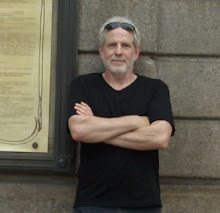The recent return of NBC's The Biggest Loser has generated some interesting criticism. Amanda Vogel, a certified fitness professional, has provided a thorough analysis of the show's training methods on the IDEA Health & Fitness Association website.1 Among the concerns of her sources:
“There seems to be no rationale for exercise program design. Clients are pushed to their limits, which places them at risk of injury and overtraining."
“Making a person feel badly about his or her effort, mental/emotional status or progress is not a strong motivator..."
“I believe [the show] sets unrealistic expectations for many people who have a large amount of weight to lose.”
However valid these complaints might be, they ignore one crucial but obvious detail; it's a TV show. The categorizing of such shows as "reality programming" only confuses the issue. Jean Shepherd, the late humorist, broadcaster, and social critic, had the most profound answer for those who complained that television didn't reflect reality. He simply pointed out that it isn't reality, it's television.
Look no further than the show's use of the "cliffhanger" scale. When you step on your bathroom scale in the morning, does the indicator swing wildly for twenty seconds while dramatic music plays? I didn't think so.
The fact that weight loss is a serious concern for so many people only adds to the confusion. I don't imagine viewers of The Bachelor really feel that withholding a rose is the proper way to dump a potential mate or consider the bungee jumping on The Great Race a normal component of foreign travel. These shows are clearly contrived competitions manipulated for maximum thrills and with no long-range consequences for the contestants beyond winning a prize. But the very real health risks of the contenders on The Biggest Loser resonate with viewers who then look to the show for personal guidance. Caveat emptor.
And while you debate the merits of dieting as seen on TV, it's also wise to remember that watching TV itself can be major factor in needing a diet in the first place.
This issue is far more complex than mere couch potato syndrome. In my case, the conjunction of food and television has not only affected my girth, it has influenced my personality, my cultural tastes, and my choice of profession. It also explains why I whistle "Howdy Doody Time" when I'm hungry.
There is a strong elemental synergy between the tube and the fridge. For one thing, they are both purveyors of the limited yet precious freedom afforded modern man. Your TV may provide you with five hundred channels of absolute swill, but at least you control which swill to watch. And during commercial breaks, you can run to the fridge and choose which swill to swill. There's more personal autonomy for the average American in an hour of TV viewing than exists for the entire population of Albania in a year.
My own blurring of show business with chow business began in infancy. When restless at night, I would be rocked and fed, but not to some old-world lullaby. No, I was soothed by the gentle sounds of Jerry Lester and Morey Amsterdam on Broadway Open House. The bottle-and-Borsht Belt combo was my first TV dinner.
During my grade school years, my bond with television and Twinkies grew stronger. This came about as a byproduct of my early bedtime. I knew that while I languished in bed, something was going on that was exciting, something denied to me by rigid and autocratic adults. Through the bedroom door, I could hear the muffled sound of the TV along with my parent's laughter, and I seethed with revolutionary fervor.
My parent's absorption in their program allowed me to sneak downstairs and stock up on goodies. Since I was a chubby kid, they severely restricted my intake of snacks but inexplicably, kept the house loaded with them. I'd creep back to my room with enough provisions to last the siege of Leningrad, and except for an occasional telltale crumb, they were none the wiser. Not much of a rebellion to be sure, but I was ten, and Holyoke wasn't Havana.
Eventually, unable to monitor my hours due to their own fatigue, my folks sensed defeat and eased the restrictions. During school nights, I could only stay up until 9:30, but on weekends, I had carte blanche. With this last concession, they opened up Pandora's (and Admiral's) 21" black-and-white box, and out blew the strange cultural winds that shaped my character.
Unencumbered by parental oversight, I watched TV until comatose, and consumed mountains of junk food with impunity. The link was forever forged. Happiness is a warm puppy, said Charles Schultz, but for me, you couldn't beat Steve Allen and Cheez Doodles.

No comments:
Post a Comment